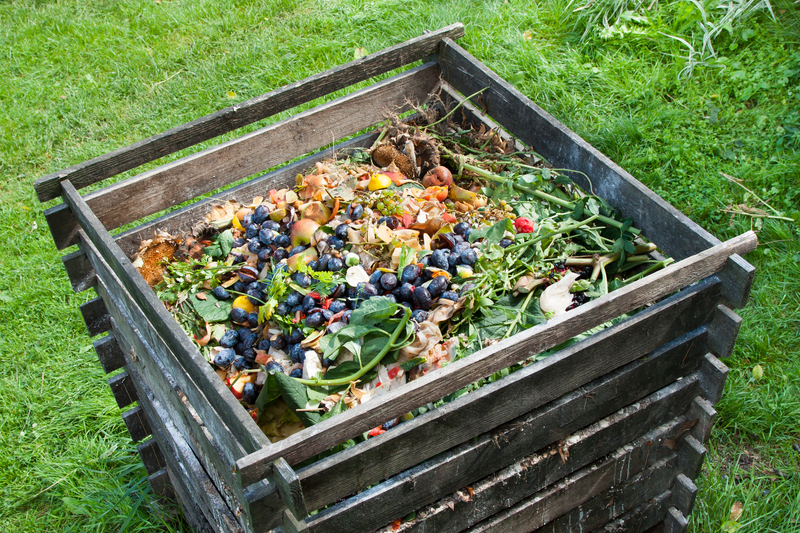Transforming Green Waste into Eco Opportunities
In today's rapidly changing world, the concept of sustainability is gaining traction across various sectors. One of the most promising aspects of this movement is the transformation of green waste into eco-friendly opportunities. As environmental challenges increase, it's pivotal to harness methods that utilize natural waste effectively and innovatively.
Understanding Green Waste
Green waste, or organic waste, constitutes biodegradable materials like lawn clippings, branches, leaves, and household biodegradables. Annually, several tons of green waste are generated, which, when left unmanaged, can contribute significantly to landfills and climate change-triggering emissions.
The Impact of Green Waste
- Methane Emissions: Decomposing organic waste in landfills produces methane, a potent greenhouse gas.
- Landfill Overburden: Growing populations mean more waste, with a substantial portion of it being organic.
- Resource Utilization: Unutilized green waste represents a missed opportunity for resource conservation.
With these issues in mind, the innovation in transforming organic waste into valuable resources becomes more critical than ever.

Eco Opportunities from Green Waste
Addressing green waste effectively can not only reduce its impact but also convert it into valuable products and services. Here are some fascinating eco-friendly opportunities:
Composting: Nature's Recycling
One of the most traditional yet effective ways to manage green waste is through composting. This natural recycling process converts organic matter into nutrient-rich fertilizer. Here are some compelling benefits:
- Soil Enrichment: Compost improves soil structure, water retention, and nutrient content.
- Reduction of Chemical Fertilizers: Using compost decreases the dependency on chemical fertilizers, promoting healthier ecosystems.
- Carbon Sequestration: Composting helps in capturing carbon dioxide from the atmosphere, mitigating climate change.
Bioenergy Production: Harnessing Power
Advanced technology allows for the conversion of green waste into bioenergy, a clean and renewable energy source. Biomass conversion processes include:
- Biogas: Anaerobic digestion of organic waste produces biogas, which can be used for heating, electricity, and transportation fuel.
- Biofuels: Green waste can be processed into biofuels like biodiesel and ethanol, offering an alternative to fossil fuels.
Energy from green waste underscores the untapped potential of these biodegradable materials in creating a sustainable energy future.
Biodegradable Plastics: An Eco-Innovation
The discussion on reducing plastic waste highlights the significance of biodegradable plastics. Derived from green waste, this innovation offers promising prospects:
- Reduced Pollution: Biodegradable plastics decompose more rapidly, lessening environmental impact.
- Sustainable Lifecycle: Utilizing organic waste in production ensures a green and sustainable lifecycle.
Creating biodegradable plastics from green waste signifies a crucial stride towards combating plastic pollution and preserving the planet.
Challenges and Solutions in Green Waste Management
While the potential of transforming organic waste is immense, there are several challenges to be addressed, ensuring effective implementation:
Logistical Hurdles and Infrastructure Needs
An efficient green waste management system requires robust infrastructure and logistical coordination. Overcoming these hurdles involves:
- Investment in Infrastructure: Establishing composting facilities, biomass conversion plants, and waste collection systems.
- Community Engagement: Educating citizens on waste segregation and the importance of sustainable practices.
Policy and Regulatory Landscape
To encourage green waste transformation, comprehensive policies and regulations are essential:
- Incentives for Innovation: Government incentives for businesses and startups focused on waste management innovations.
- Regulatory Frameworks: Establishing clear regulations for green waste processing and utilization.
Policy support can catalyze the transformation of organic waste into economic opportunities, encouraging innovation and sustainable practices.

The Future of Green Waste Transformation
With growing awareness and technological advancements, the future of green waste transformation looks promising. Key areas to watch include:
Technological Innovations
Emerging technologies can enhance the efficiency and scope of green waste utilization:
- AI and Machine Learning: Utilizing data analytics for better waste management predictions and decision-making.
- Advanced Material Sciences: Developing new materials from organic waste with enhanced properties.
Global Collaborations
International cooperation can expedite progress by sharing knowledge, resources, and best practices.
- Conferences and Workshops: Platforms for engaging with global thought leaders and sharing innovations.
- Research Initiatives: Collaborative research on a global scale to address common challenges.
The collective global effort can play a pivotal role in amplifying the benefits derived from organic waste transformations and creating a more sustainable world.
Conclusion
Transforming green waste into eco opportunities is not just an environmental imperative but an economic one as well. By adopting comprehensive strategies that incorporate technology, community engagement, and policy alignment, we can unlock the full potential of green waste. This transformation paves the way for a sustainable future, balancing ecological needs with economic growth.
Through innovations in composting, bioenergy production, and biodegradable material development, there's immense potential to drive change. Understanding and overcoming the associated challenges can set the stage for a greener, more resource-efficient world.